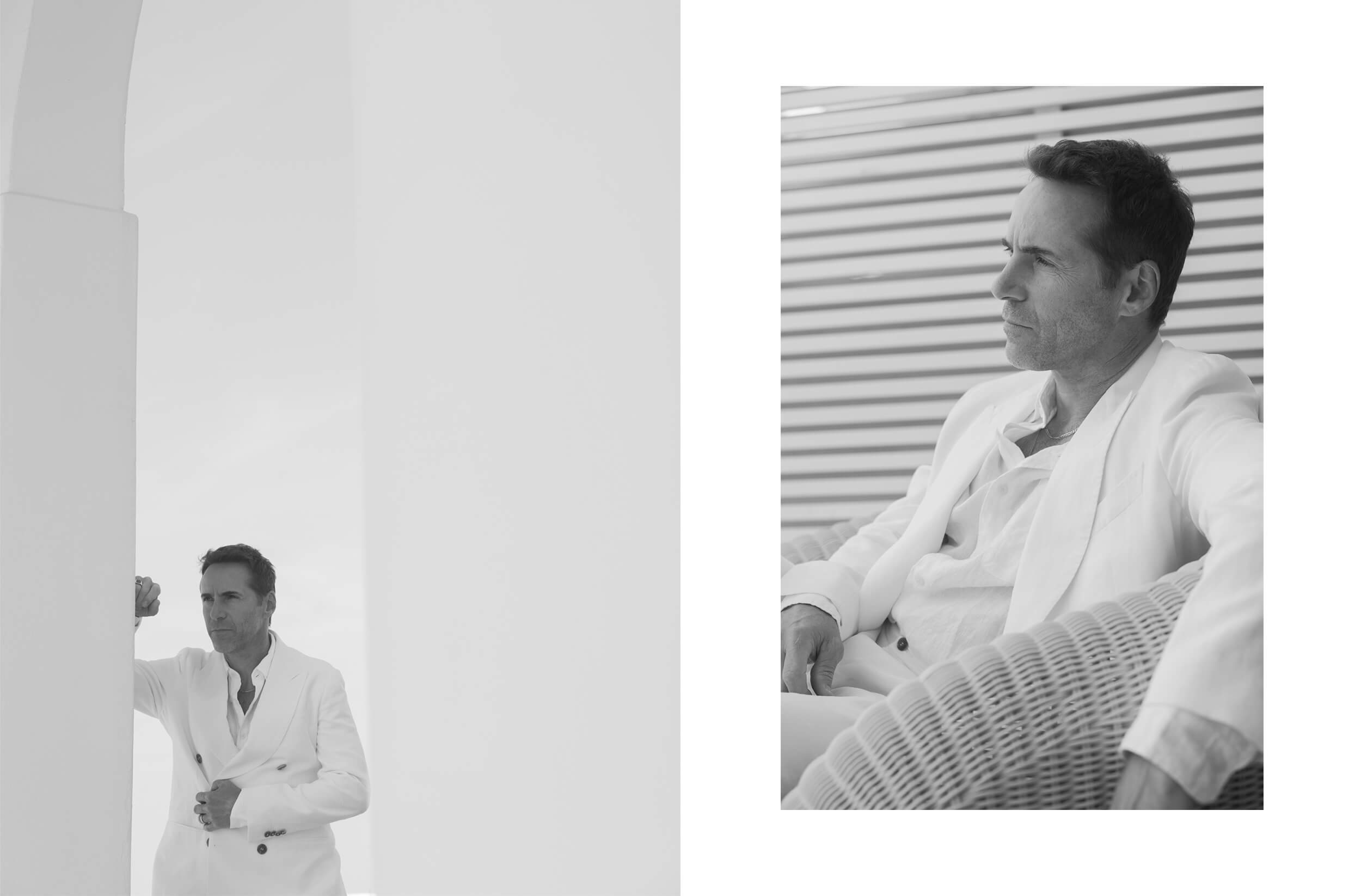A handful of anecdotes from the set, job insights, tricks of the trade, and lots of family memories: my interview with Alessandro Nivola was one of a kind. Never had I ever had a chat with a person with so many tales to tell, a kind and thoughtful human being with such great attention to detail and devotion to his job and how it affects people’s lives and world perception.
We extensively talked about his latest movies, “The Brutalist” by Brady Corbet and “The Room Next Door” by Pedro Almodóvar, which both premiered and were awarded at this year’s Venice Film Festival; we discussed the immigrant experience and the feeling of being “out of place” in a country that’s not your own, but that you had to make your own for one reason or another, whether it’s war or destiny; we broke down the mesmerizing and formative experience of being guided by the greatest directors of our times.
A chat that could have lasted forever without ever feeling too much, just like those two masterpieces of movies soon coming out in theaters and hopefully ready for the upcoming Awards Season.
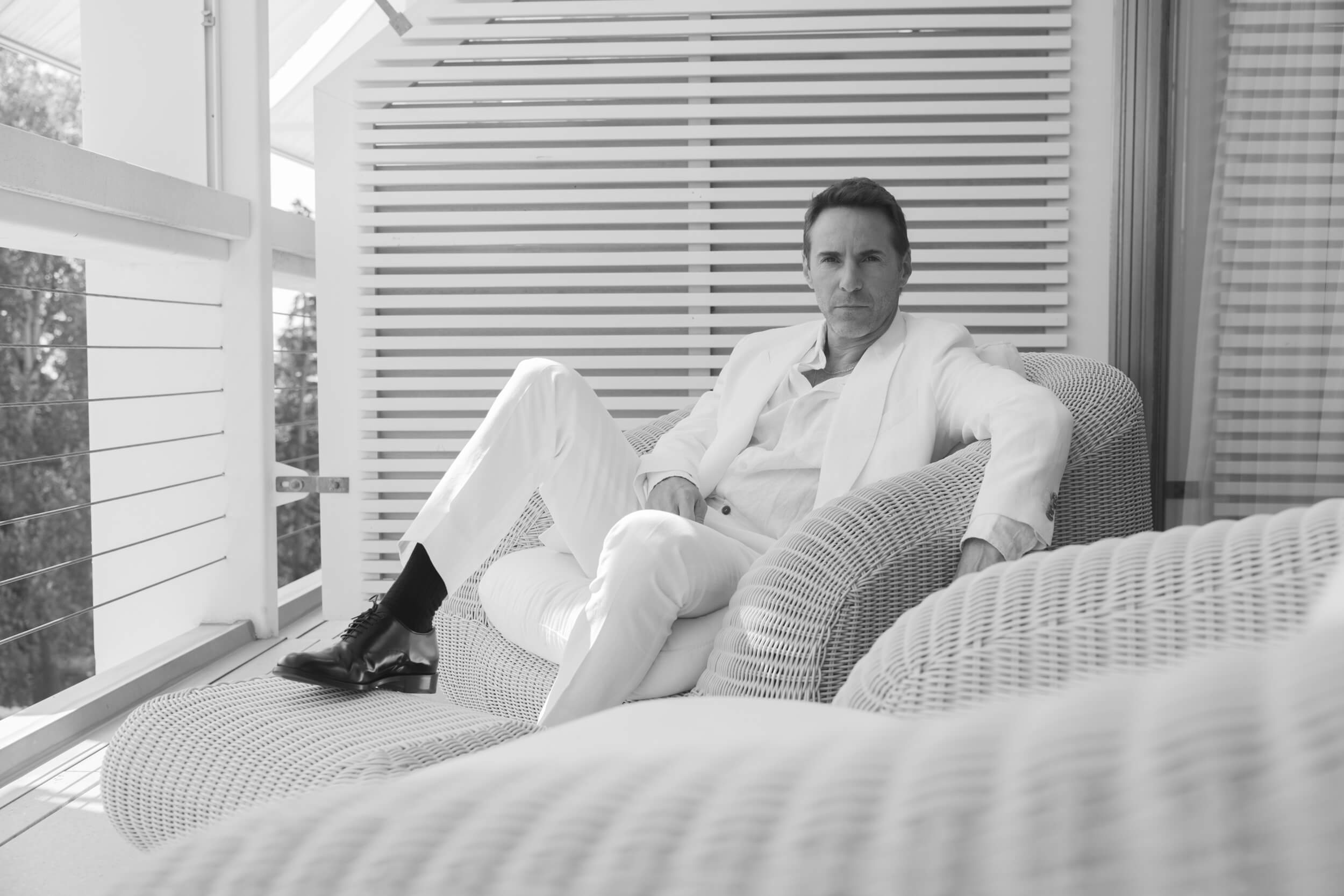
First things first: congratulations on “The Brutalist”, I think it’s a masterpiece.
Thank you so much. You know, the movie has been compared to some epic films of the past, like “There Will Be Blood”, and this is the first inkling that we had that people might be responding to this in a really positive way!
I remember that I was having dinner with Brady [Corbet] the night before the premiere in Venice, and there was a press screening the night before and people started texting him saying that there had been an ovation from the critics screening at the intermission.
It was my experience too when I went to see the press screening: there was the intermission and people all stood up and started to clap their hands and take pictures of the “family photo”!
Yeah, and they were apparently counting down the seconds until it started again. Anyway, so that was when we started thinking, “Oh my God, something’s going on here”.
It’s been such an amazing thing to have a front seat to watch Brady go through that, knowing how long he had suffered to make the movie, and he lives one block from me here in Brooklyn, just on the next street over, so I’ve just seen him go through the whole experience.
I was one of the first people attached to the movie. He called me during the first week of Covid and everyone had just gone into lockdown and we were hoarding our cans of cannellini beans or whatever in the kitchen and he Zoomed me. It was very interesting to begin with because in the story he told me he had in mind there was so much crossover with my family. You know, my grandfather was best friends with Le Corbusier, who’s considered the father of brutalism, and my grandmother was a Jewish Holocaust refugee, so Brady and I had this fascinating conversation about it. And then he told me he was going to shoot it in Poland in two months, and, you know, it was a time when no movies were being made, nothing was happening at all but the end of the world, and so I signed on.
Going back to my grandparents, anyway, my grandfather was a Sardinian sculptor who had grown up in a tiny little paese in Barbagia, he was one of nine children and they were totally impoverished, but he got a scholarship to go and study under Marino Marini at a famous art school outside Milan in Monza; meanwhile, my grandmother was a German Jew who was born in Munich and had lived in Frankfurt until she was about 12, and then they had fled the Nazis and moved to Torino in the early 1930s, so she’d grown up living in Torino. Then she went to the same art school as my grandfather and when the war started, her parents fled to New York and she stayed. However, they were in love, so they decided to go and move to Sardinia and got married there.
As the war started, one night, one of their close friends in their village woke them up in the middle of the night and confessed that he’d been informing on them for three months and that the police were coming to arrest them in the morning. So, they packed their bags in the middle of the night and fled through France and then to New York. Later on, my granddad became a celebrated sculptor and was part of the whole abstract expressionist group of painters and sculptors living out in Eastern Long Island.
That’s why he had become very close friends with Le Corbusier who even came to their house and painted some murals on the walls – I mean, he showed up one day and said, “Your walls are too white and they need a mural!” [laughs]. I grew up in that house, in the summers, and those murals are still there: it looks like a museum, like an art gallery, but it’s just a house.
Anyway, so Brady and I had plenty to talk about!
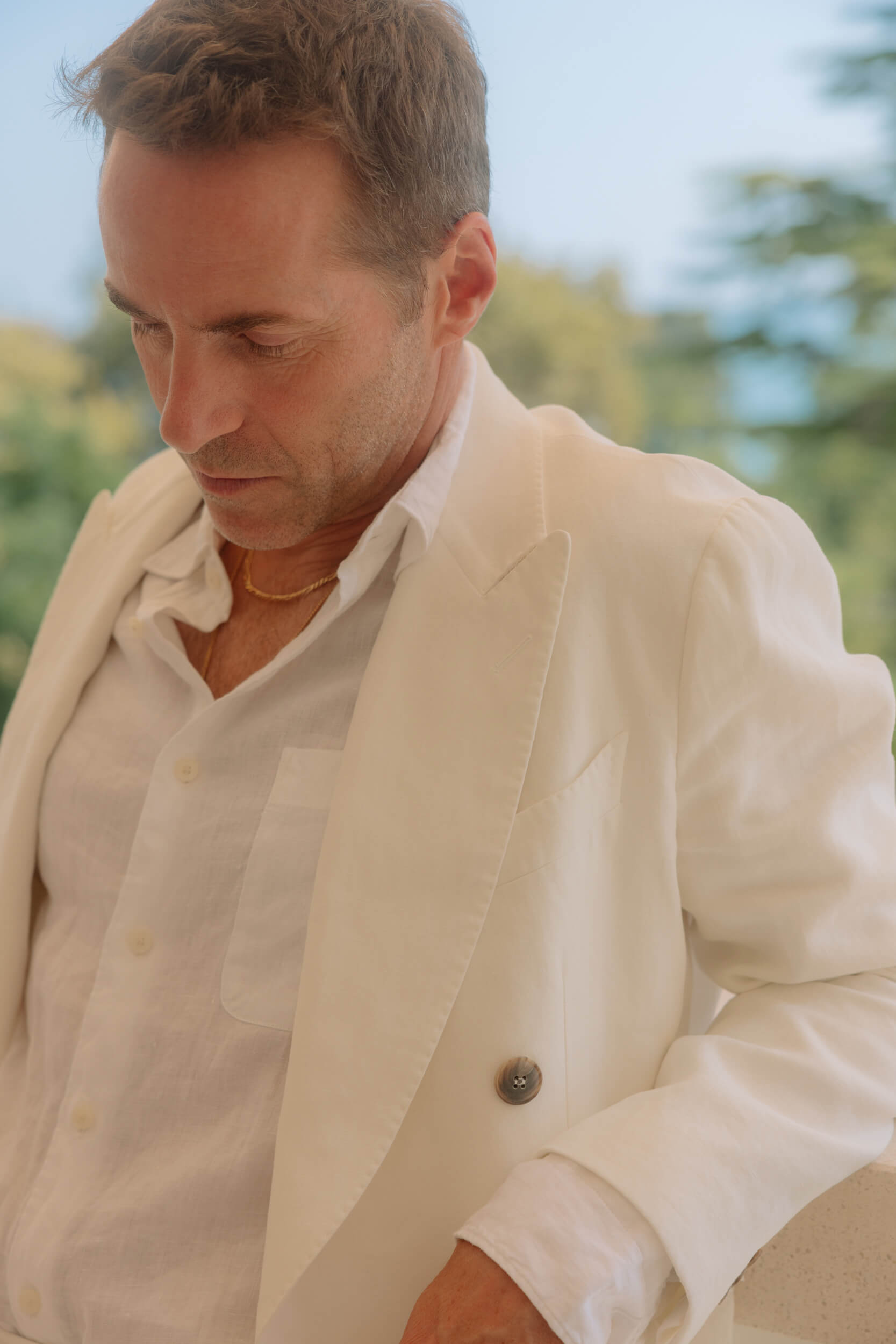
“It was very interesting to begin with because in the story he told me he had in mind there was so much crossover with my family.”
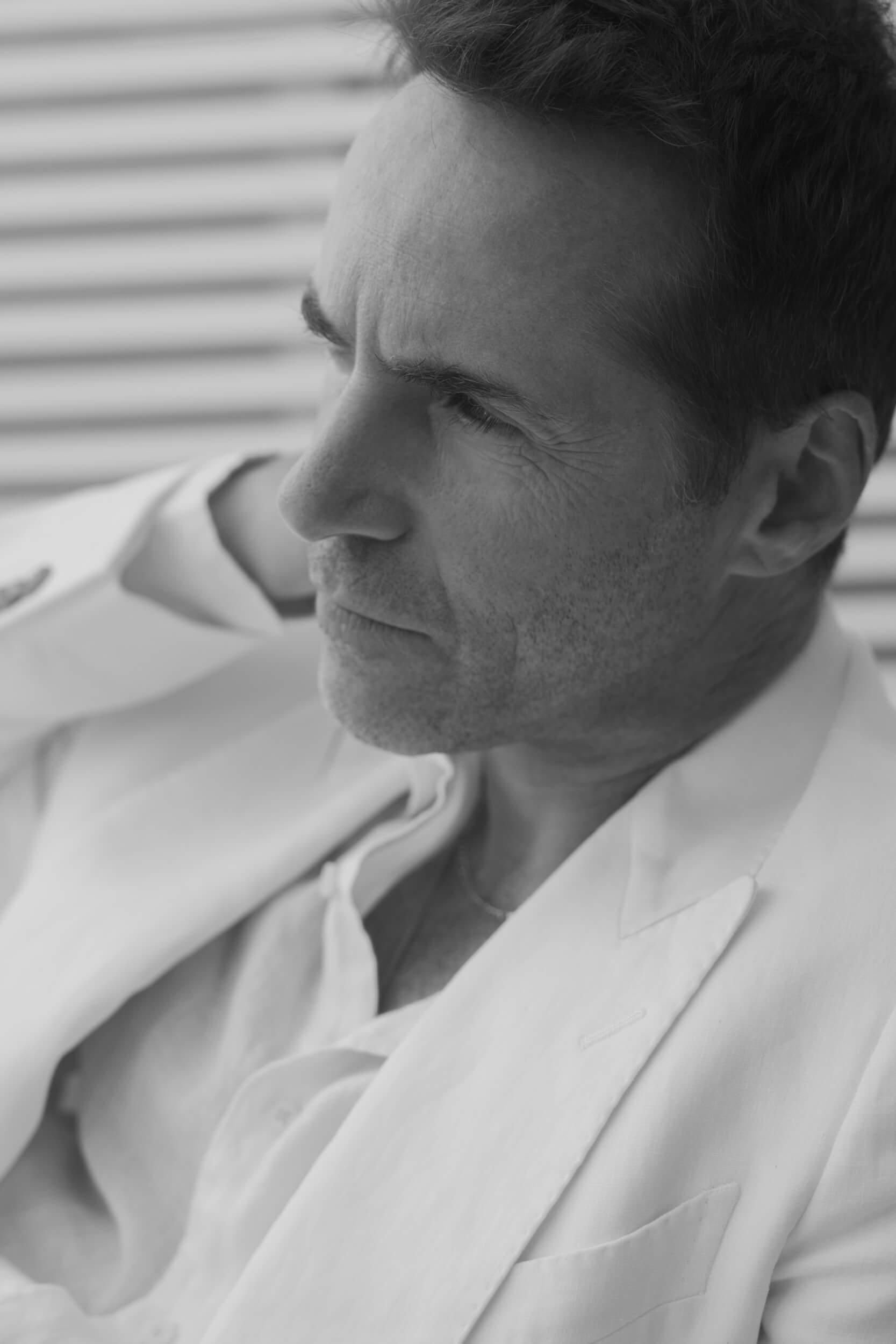
Yeah, I guess you were emotionally involved in the story. I mean, it’s not, of course, the exact same thing, but you had something in common with everything. It’s crazy.
Yeah, and then, as we got talking about the character in particular, I felt like the story between László, the character that Adrien Brody plays, and Attila, the character that I play, is a sort of prologue to the film. It’s almost like a short film of its own that sets up the story and sets the tone of the whole movie and it has a kind of dramatic arc through that relationship in and of itself, completely separate from the rest of the movie or within the rest of the movie. I thought it was so nuanced and layered, the relationship between the two of them, because they’re cousins, obviously, and they have a complicated history.
Attila had left Hungary after the First World War, so he’d been already living in America for 15 years; on the one hand, he’s posturing in this way, trying to convince both László and himself, I think, that he’s successfully made it in America, even though all signs are to the contrary because he’s living in this kind of shitty little apartment and running a crappy furniture store and his social status is so low and he’s so desperate to prove that he has more value in the culture than he does. On the other hand, he also is guilt-ridden for having missed the Holocaust. And then Laszlo arrives, a man who’s just been to hell and back, and there’s a kind of feeling of shame around that, and also a feeling of idolatry of László’s genius and his talent, and then also a resentment of his that power. And then there’s love: I think Attila really loves László as a family member, as blood, you know?
All those things are at play all at once, and it’s a sort of microcosm, which is what gives such depth and power to the movie in general.
Then behaviorally, it was going to be so interesting to play somebody from a foreign place, who’d lived in America long enough to almost be American, but not quite, and figure the way that he would sound speaking.
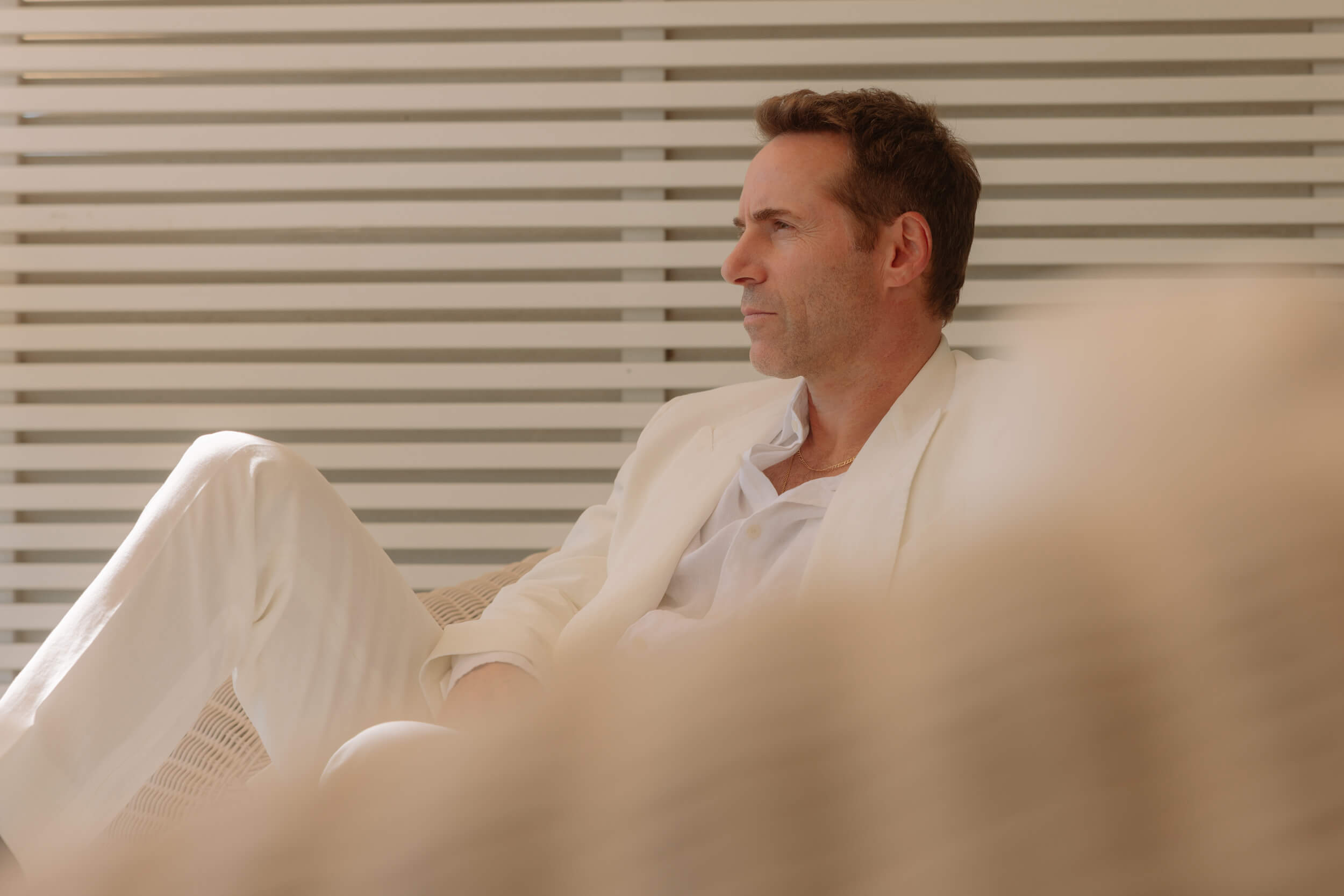
Like you said, Attila kind of wants to deny his past. I mean, he got to America, changed his name, and even converted to Catholicism by marrying an American woman. And he seems proud of these changes and putting his heritage aside. How did you approach portraying this character and what do you think motivates his desire to delete his history?
Well, like so many immigrants coming to America, it was so difficult to succeed in this process, and I look at this country as having this kind of second-class status of being an immigrant and being Jewish. Speaking of the movie, both Attila and László come from, probably, a sort of highly educated, bohemian, or even bourgeois background, but certainly, they were cultured people, and arriving in America, they’re just another Jew, and just another immigrant. So, I think with all the people arriving from Europe at that time, you know, even non-Jewish Italians, Irish, there was this sort of need to fit in and to kind of hide the fact that you have this immigrant status in order to be able to succeed and get ahead. I think it takes a lot of courage to not try and disguise that heritage in order to be able to be accepted.
Attila, despite all of his puffing his chest out, is a really insecure person and is desperate to be accepted, and it was such a common thing for immigrants trying to assimilate into American culture. My father went through this, you know, he didn’t speak English until he was six years old, and he had a “strange status”. My dad ended up going to a fancy boarding school and he was desperate to be accepted by the preppy, fancy society characters there. And he changed his name for some time from Pietro Salvatore Nivola to Pete! He just didn’t want to be the sort of greasy Italian immigrant or whatever, with these prep school kids and he wanted to be accepted, especially at that age. It was later around the time that I was born when he started returning to feeling proud of his heritage and where he’d come from, and he changed his name back.
Then when I was born, he gave me the most Italian name you could conceive of, which in this country, no one can fucking pronounce! [laughs]
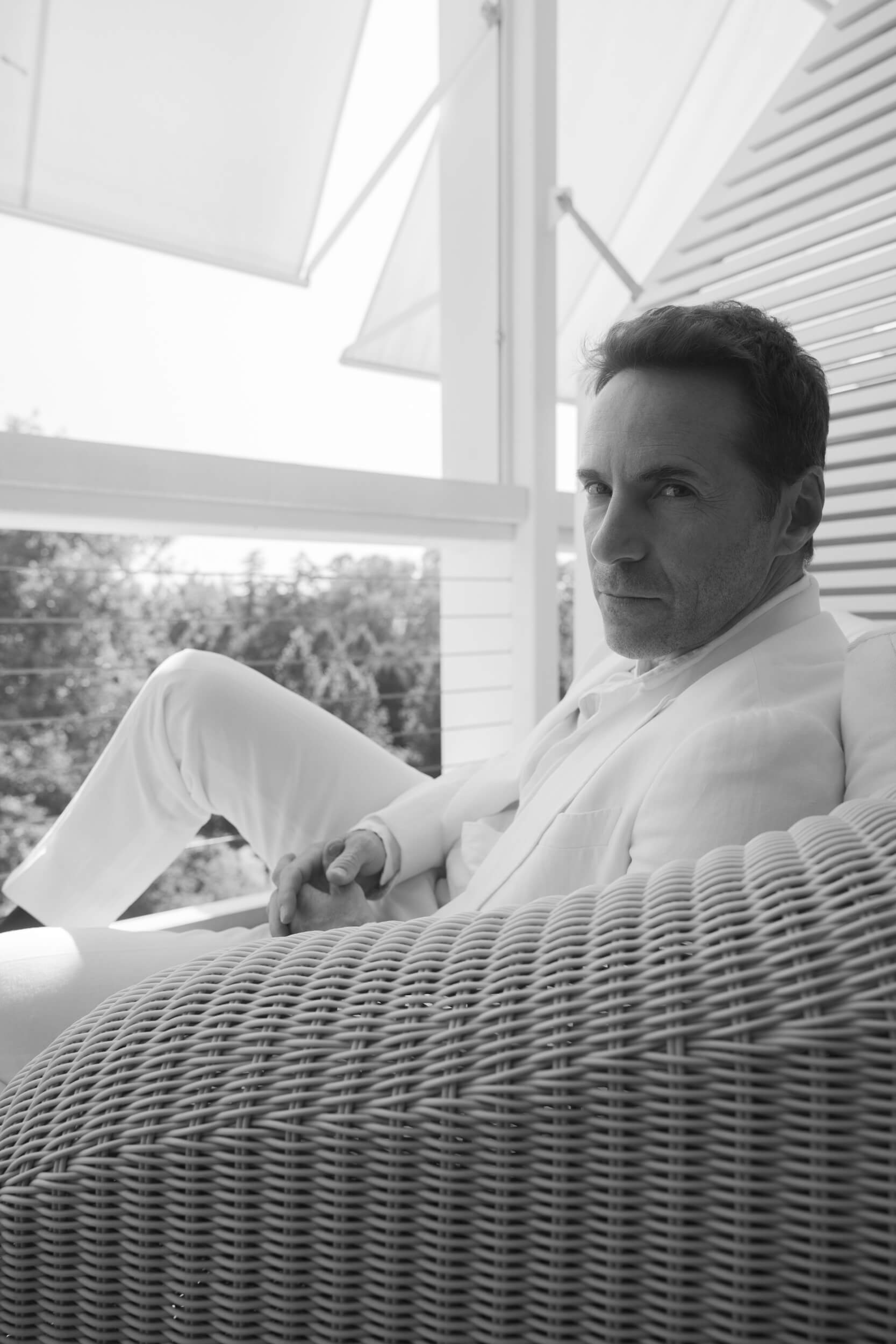
“I think it takes a lot of courage to not try and disguise that heritage in order to be able to be accepted.”
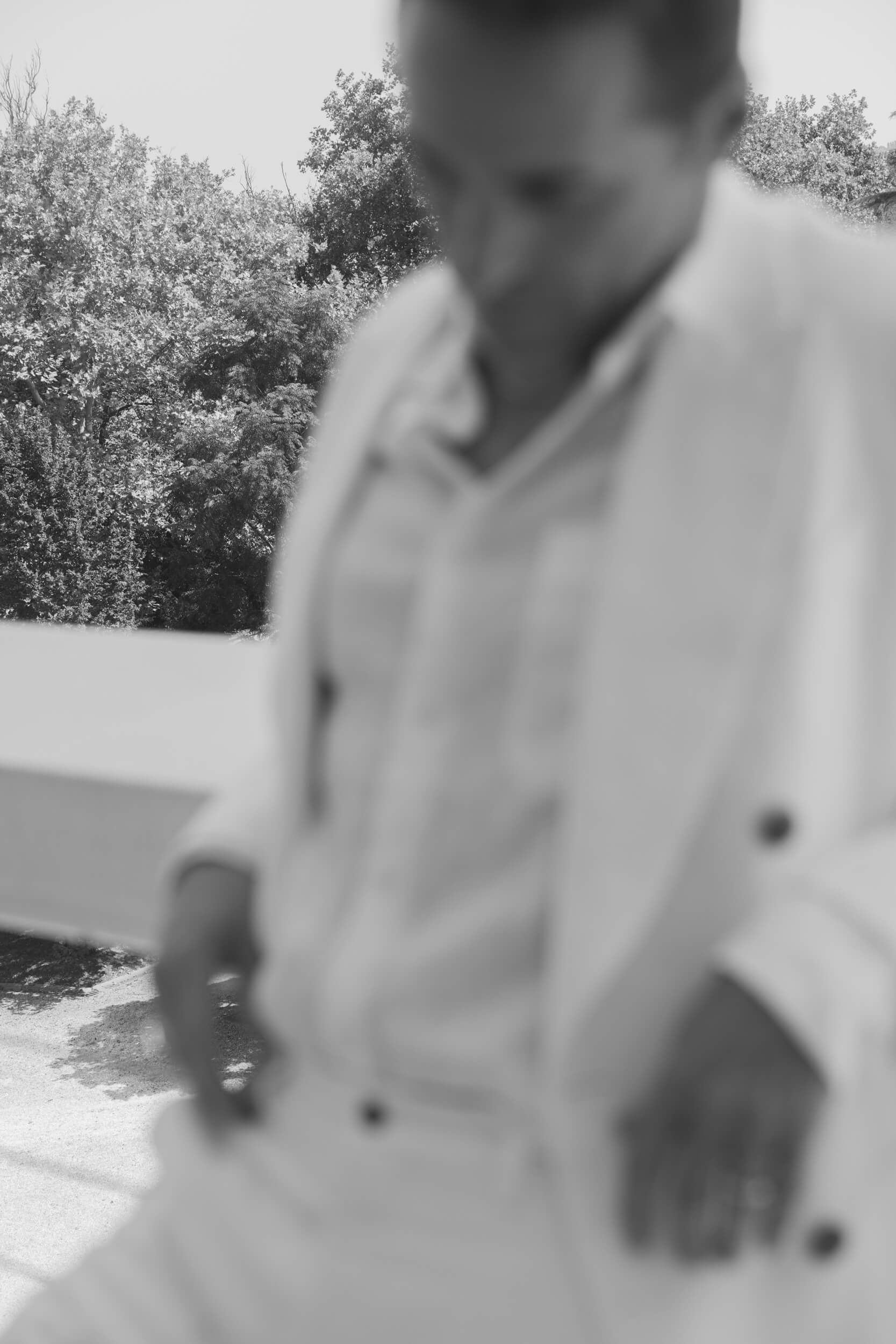
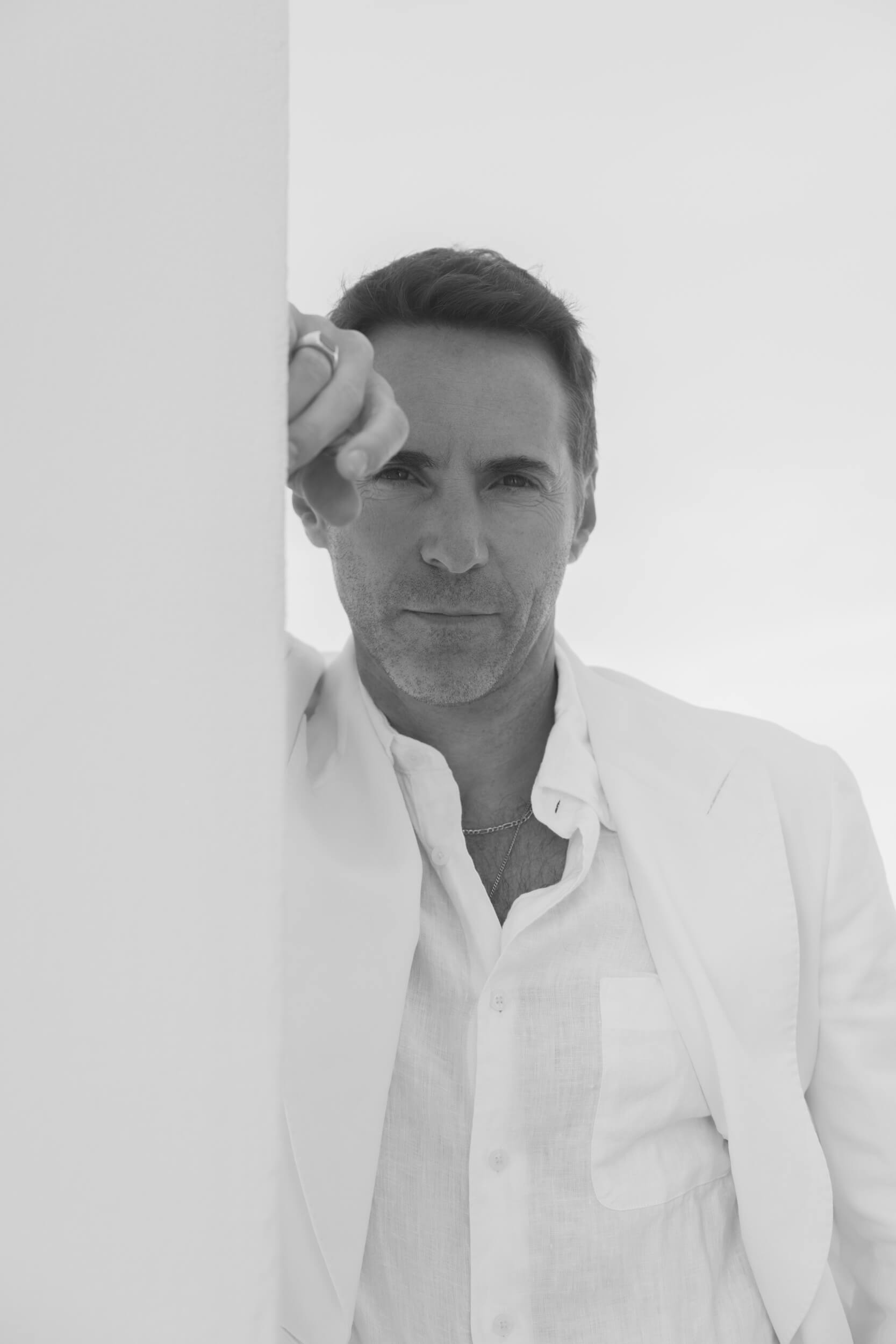
On that note, the film sort of talks about success and its consequences, and you yourself mentioned the word more than once, and shows how success leads to change and transformation and in some cases also degradation of identity, of patriotism, as you were saying, and even of feelings like love, if we think about the relationship between László and his wife and how it changes throughout the story. That’s also one of the reasons why the storyline is quite complex, even emotionally speaking. How did you navigate these delicate themes and what did you find most challenging about bringing all these concepts to life on the screen?
Well, I think the most important thing is that, as actors, you have to be willing to allow many things to be, for the possibility for many different paradoxical things, that are in opposition, to exist at once in every moment of a scene.
So, in other words, I was describing before that Attila could love László and feel resentful towards him, he could idolize him and want to destroy him all at the same time. And I think that’s true also of Guy Pearce’s character [Van Buren] and his relationship with László.
It’s like Van Buren wants to possess him, to literally be inside him, he almost has an obsession with him and fascination with his genius, but at the same time, he wants to destroy, control, and crush him. I think that the challenge is to allow the possibility for those two emotions to coexist at the very same time in any given moment in a scene. And, if you think about it, that’s also what we do as human beings all through the day. So, I don’t find it necessarily hard to do that – it’s harder to find a story that allows you to do that.
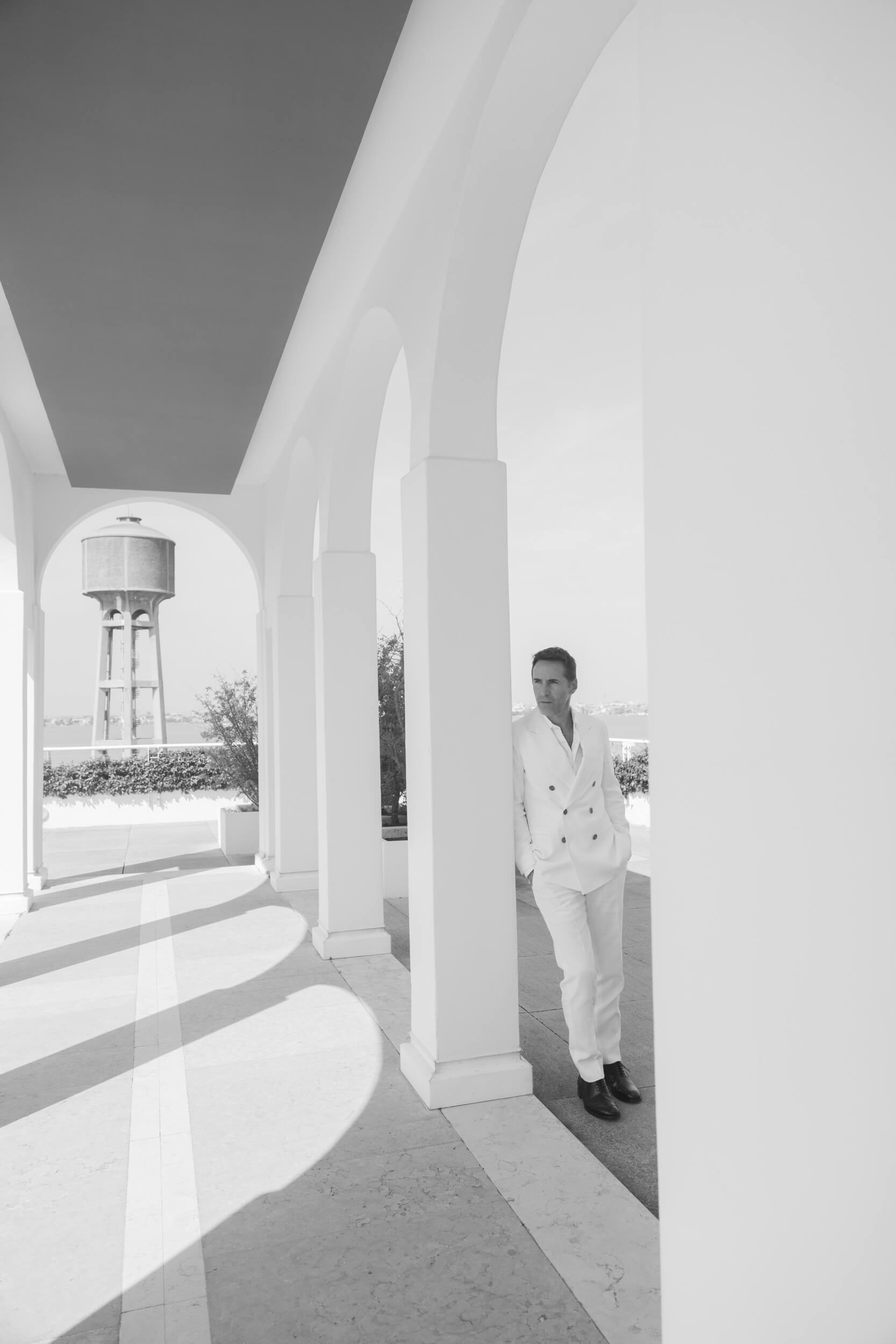
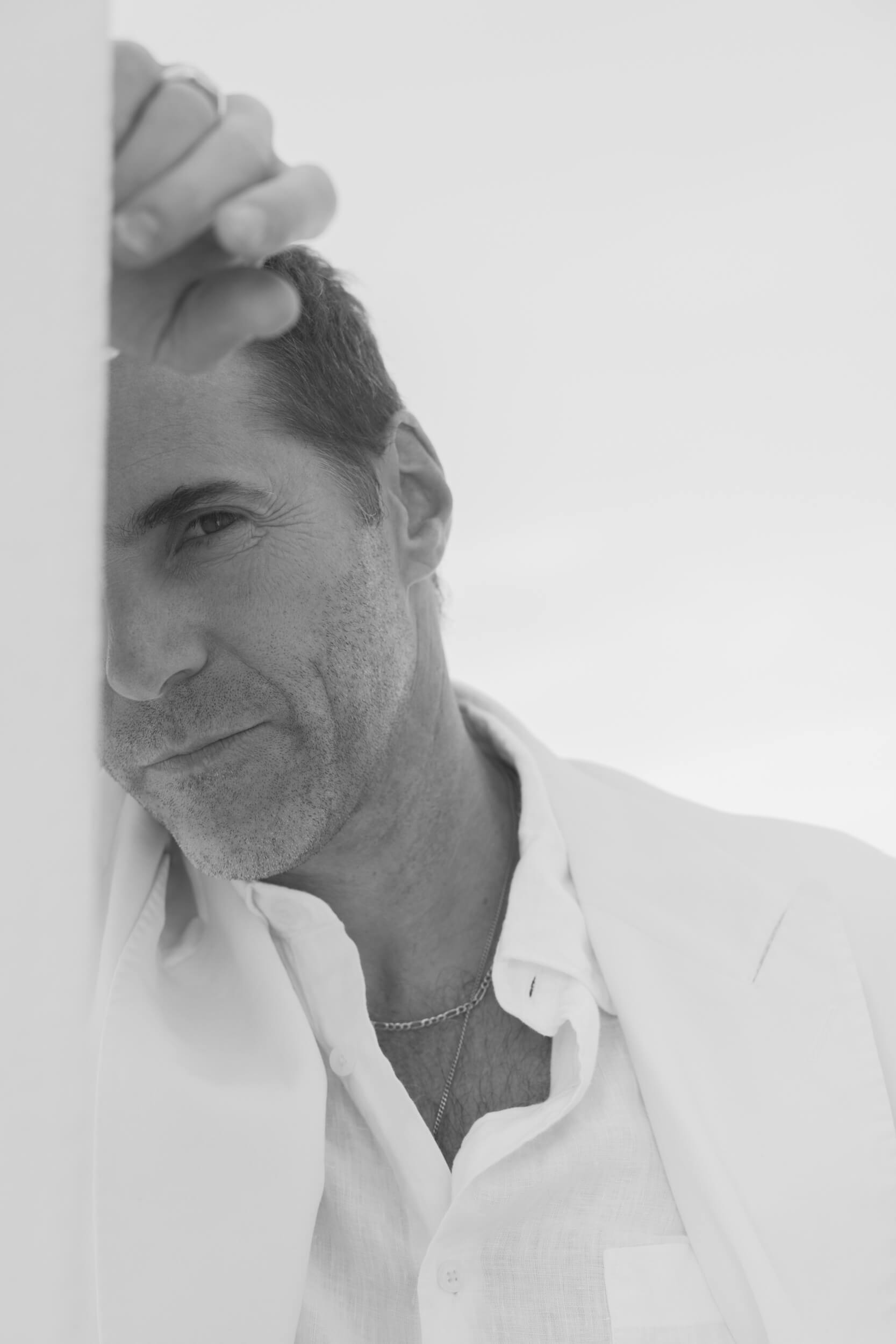
Also, one thing I really appreciated about the movie is the way that violence and pain are portrayed: they are present, but they’re rarely shown explicitly. Instead, the characters carry their trauma internally, making them almost “invisible” victims. How did you work with the director on portraying suffering in such a subtle way? And how did that approach affect your performance and, perhaps, even your life?
To be honest, a lot of it was instinctive as far as my performance went. I felt like I understood the character so well just from reading what Brady had written. In fact, we talked about it, but we didn’t talk about it too much, in the sense that I never really liked to talk about the character too much because then you intellectualize the feelings, and I never think that that’s very helpful.
I felt I understood the ways that Attila had suffered, and that the way that he presents himself and the way that he’s disguised his provenance were a reflection of something desperate. He’s trying a little bit too hard in every scene to prove himself to László and to everybody else, his wife, the Van Burens; to me, that need to constantly be convincing everyone that you’re successful or that you’ve made it is an indication of pain: but you’re not playing the pain, you’re playing the attempt to cover the pain.
There was subtle communication between me and Brady in moments where he would just encourage me to go further, but it never was overly talked about. Our conversations were more about the style of the movie, the tone, the look, the feel of the movie, and the rhythms of the movie so that I could understand the world I was in. Once we got in it, he gave me huge freedom to just play the scenes, saying very little.
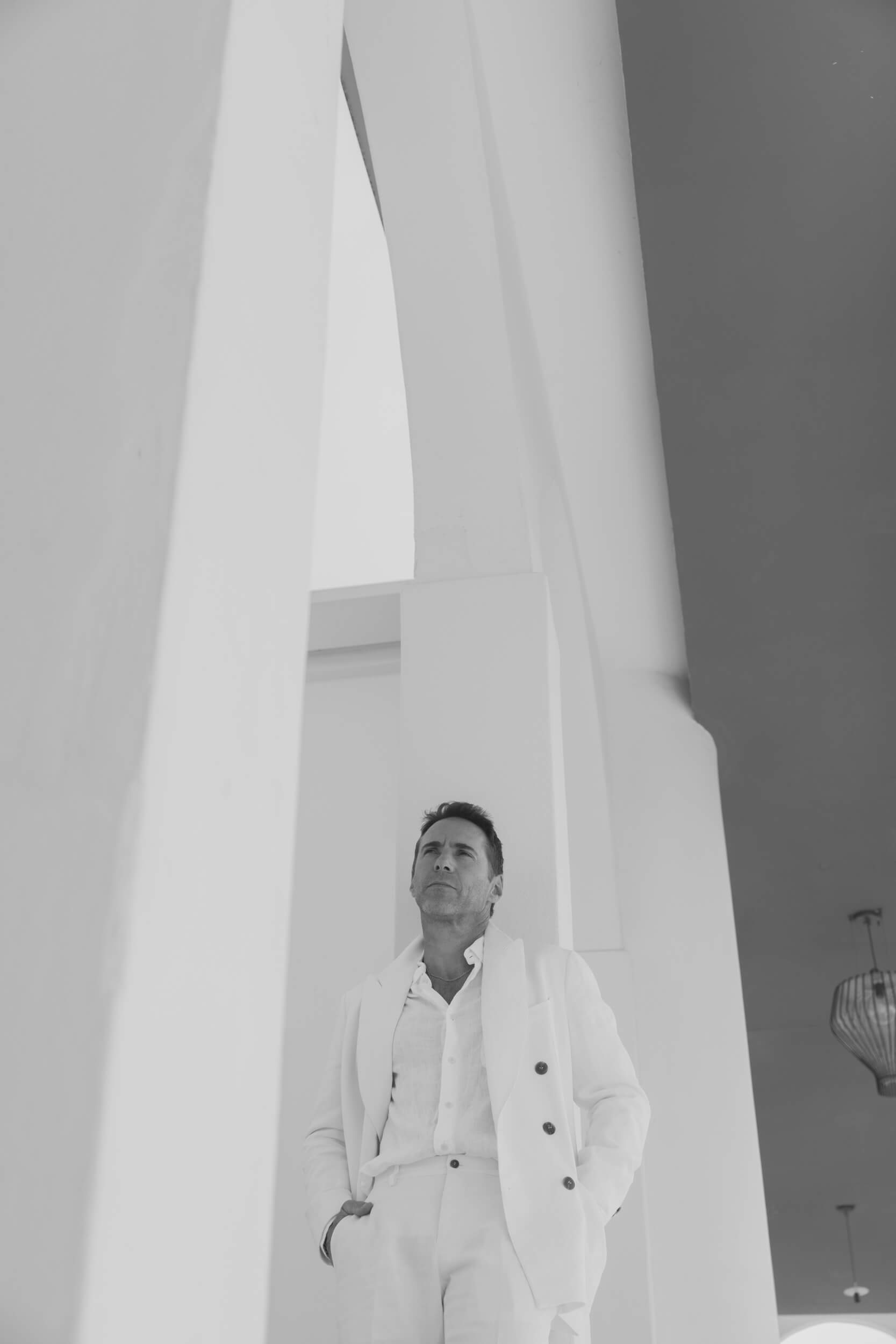
“To me, that need to constantly be convincing everyone that you’re successful or that you’ve made it is an indication of pain”
And there is a line that really stood out for me, and it was, “Dreams slip away”, because it feels like more than just a line in the movie. I think it perfectly describes the whole story and it seems to represent a recurring theme throughout. What do you think is the meaning of this quote in the context of the film, and how does it reflect the larger narrative or the characters’ journeys?
Well, America, especially at that time, was considered a place where people felt there was endless possibility. So many people came to this country from places where they’d been oppressed for their beliefs, for their ethnicity, or for their cultural history, or because of governments that just didn’t allow freedom. America seemed a new beginning, and it was that for a lot of people. Don’t get me wrong, though – my grandparents, for example, when they had to leave Italy, felt like something was torn out of them forever, in fact, my grandfather ended up spending half the year in Italy and half the year in America once the war was over. On the other hand, they were so grateful to America for having given them refuge in that moment.
Anyway, the notion of coming to this country in instant wealth and prosperity and possibility and the idea that you could accomplish anything and achieve anything, no matter who you were, was an illusion to some degree, in particular for Jewish immigrants. Coming to America, and trying to realize some kind of extraordinary ambition, Jewish immigrants were quickly confronted with the reality of all of the obstacles that were inherent in the fabric of American society.
To me, the movie is about the immigrant experience, the experience of an artistic genius, and what the moral sacrifices are to realize greatness. Brady once said that the original germ of an idea for the movie came from him wanting to make a movie about an artist being fucked by his patron! [laughs] I think he meant both metaphorically and literally.
The movie, anyway, has its own poetry beyond all that, which doesn’t need any kind of description – the experience of watching is emotional even beyond its ideas.
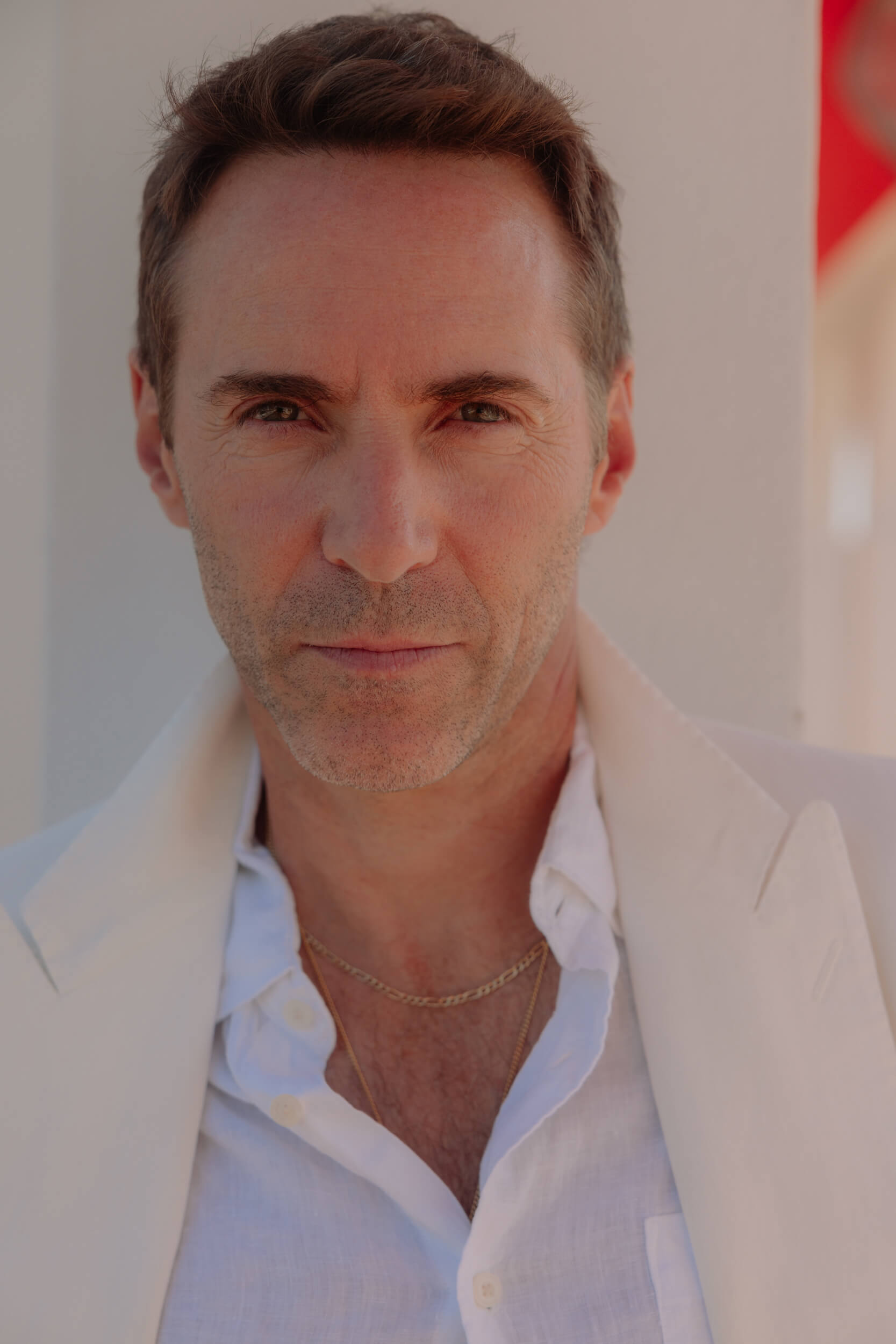
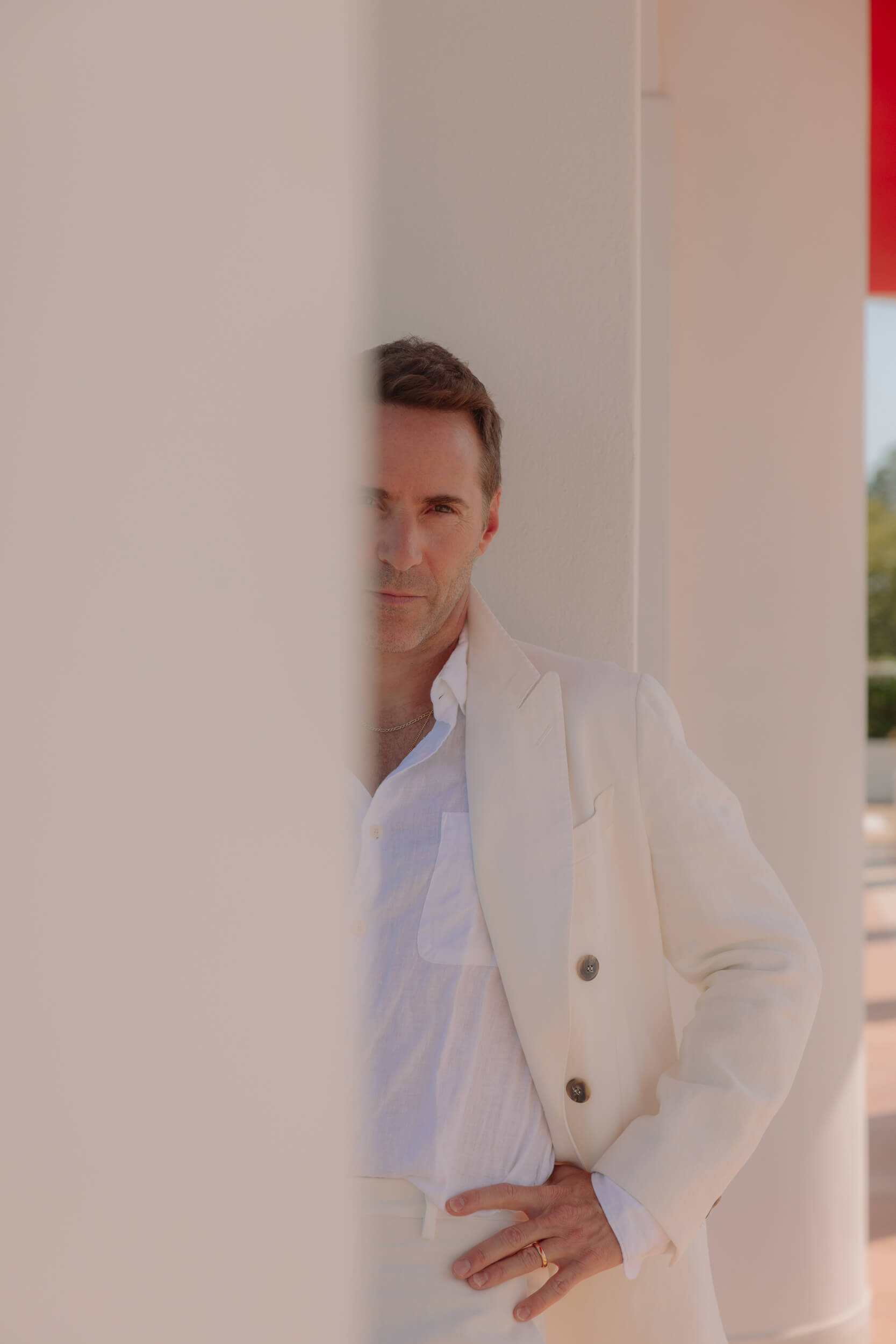
What did you learn from working on “The Brutalist” that you’ll carry into future projects and your life as well?
Brady is a student of film as much as any great director has been, in particular of the European film tradition. He was born in Phoenix, Arizona, and his mother is from Indiana, so he’s the least likely person you would think to have grown up studying the European tradition and then, as an actor, to have worked with Michael Haneke, Ruben Östlund and all those directors. But for one reason or another, having spoken to his mother, at some length, I started seeing where it all started because she’s a fascinating woman and a Francophile, she wanted to learn to speak French and ended up at the Sorbonne; so, when Brady was little, she would watch subtitled movies and he was around all the time, so he would watch those with her – I think that was the beginning of his appreciation for European art films.
Brady is the frame of reference for movies that are so deep and wide, so watching him talk about the technical side of filmmaking and then execute was an incredible education for me. What was also inspiring was watching how frugal he was in terms of his problem-solving, given the budgetary constraints that he had because this movie was made for very little money, which is so astonishing when you see how it looks and what the ambition of the scale of it is. Watching the decisions that he made for making the resources that he had stretched in the way that he did was another masterclass in how to make a film on a budget like that.
It’s nothing new to anybody that big Hollywood films tend to shoot so much coverage of every scene, there are a million setups and then most of them end up thrown away, or else they use too much of it, there are too many cuts within a scene, too many angles and too many shots. Movies like “The Brutalist” are much more deliberate in their shot selection – I think Brady had most of the scenes already kind of cut in his head before we even shot them, so we had very few setups and angles for each scene, but they were so carefully chosen in order to tell the story that he was trying to tell.
All great filmmakers are that way, they all have a very specific shot selection that they’ve worked out before you get there, and they’re also spontaneous about allowing the actors to be alive and to adjust their own notions of how they want to shoot the scene based on what organically needs to happen performance-wise.
Brady, more than anybody I’ve worked with, was able to do more with less.
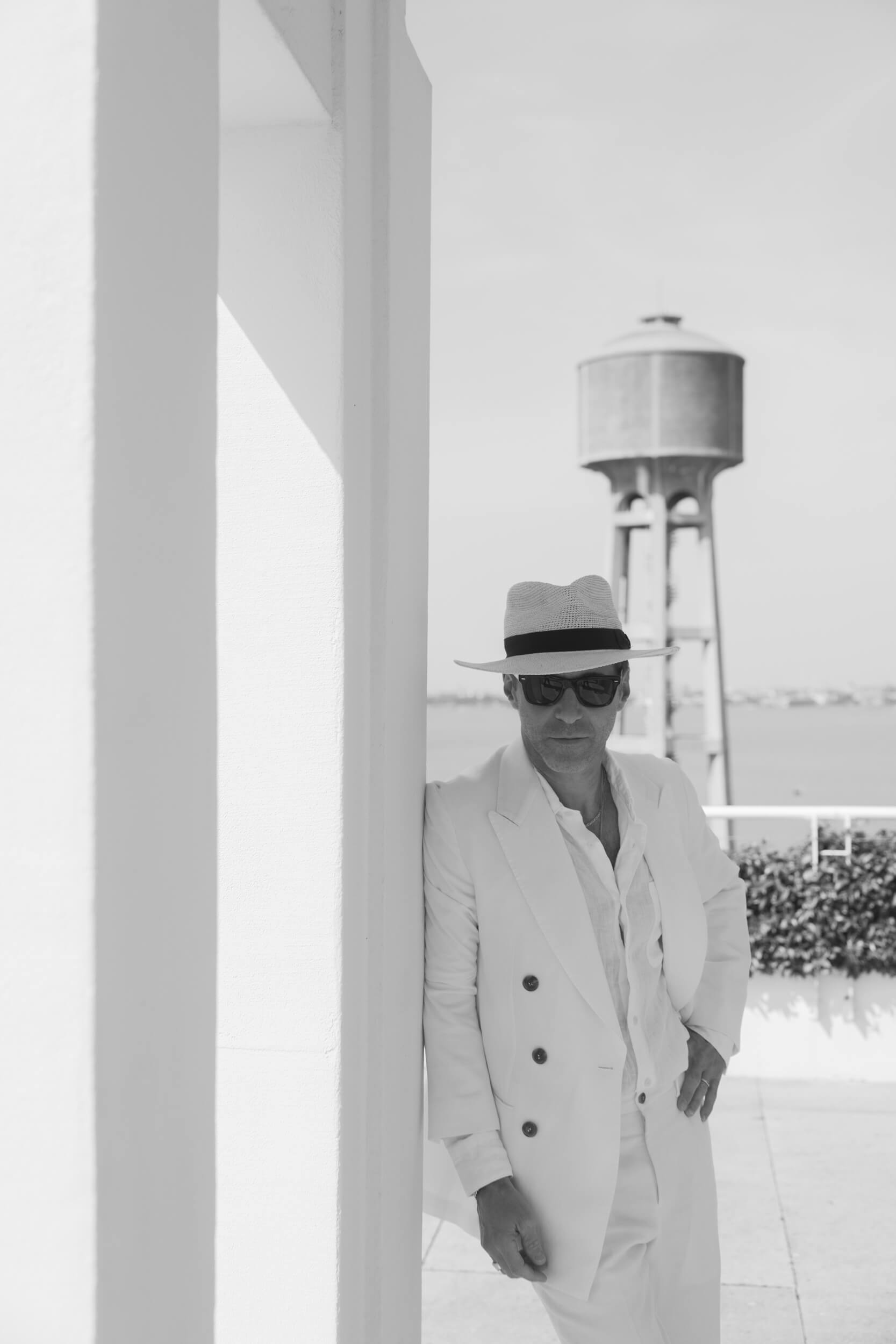
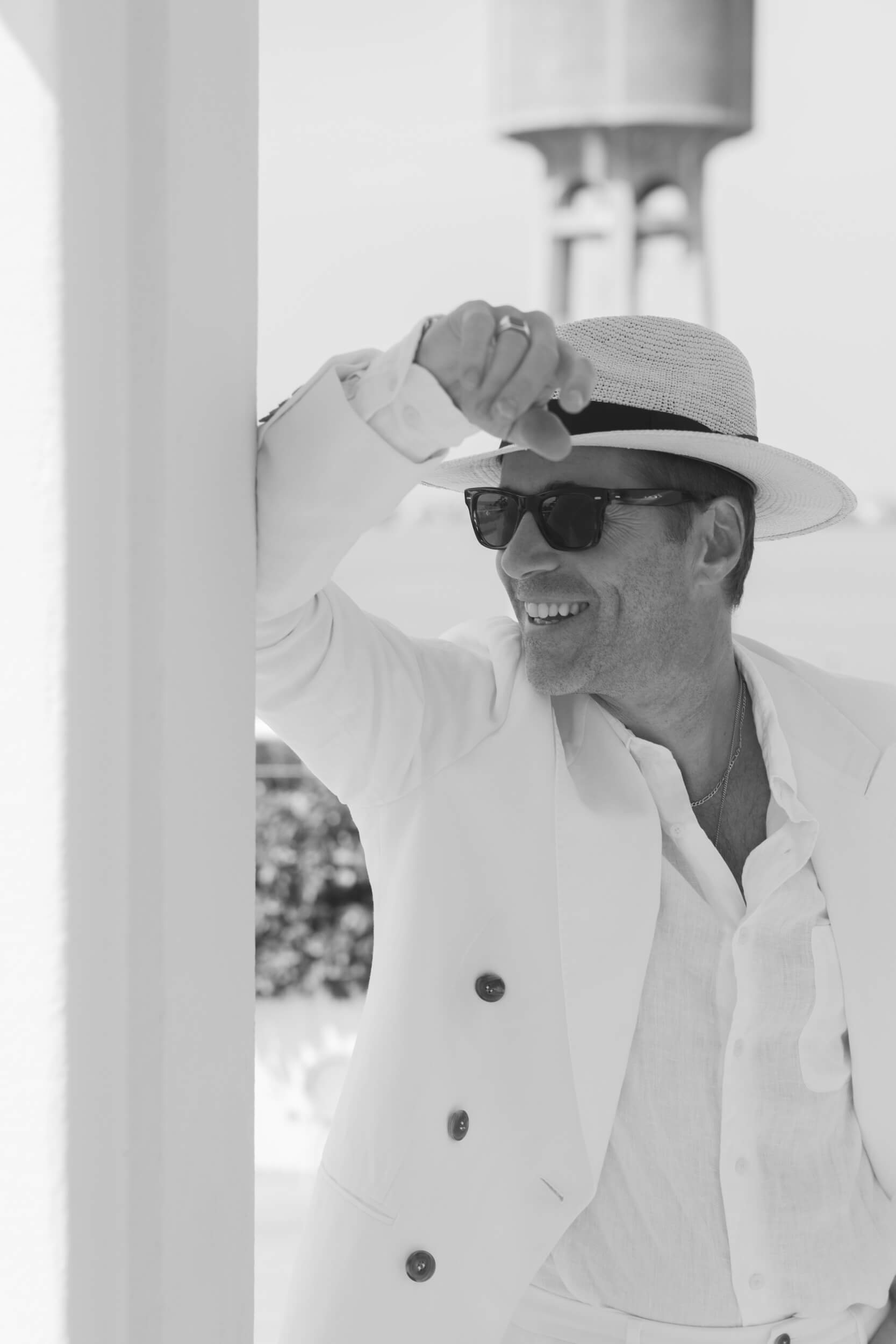
On the other hand, congratulations on “The Room Next Door”! What was it like to prepare for your role in this delicate end-of-life drama? And what was your experience on set working with Almodóvar at his first English-language movie?
It was really interesting! Mine is a small but very important role and it comes right at the end of the film – the scene is between me and Julienne Moore, and it’s a big, long interrogation, full of tension.
It was just a small cameo, but I would have done any role in any movie with Almodóvar because he’s a legend, and anybody would be a fool not to want to work with him in any capacity. Interestingly, even though it was just this one scene, he took it very seriously. I was playing a cop from upstate New York, and of course, I shot the scene in Madrid, but he flew me over there for a whole week a month before I was coming again to shoot the scene. We had several days of costume fittings and detailed conversations about every line and every word, and Julienne and I rehearsed over a couple of days. The extreme attention to detail and the intention of every single line at every moment within every line struck me about Pedro: he works with such minutia.
I was expecting the experience of actually shooting the scene to be maddening because I was anticipating being stopped constantly throughout the performance and him trying to adjust my inflections or my physicality, moment through moment. After all that preparation, when I came back a month later to shoot the scene, he did one single take! I’d never had that happen in my life. And he didn’t say anything but, “Yes, it’s very good!” [laughs].
It was amazing that all of the details of his input in the preparation stages was to allow the scene to play without him having to control it at all once we were actually performing it. That was a very unique process.
The other thing was that, as far as my performance and the personal preparation I was doing on my own, the challenge was that the worlds that Pedro creates are very stylized, and they exist outside the realms of a time and place. Of course, this movie is set in New York City and there are shots that establish that, but it’s a world that’s really a fantasy, that’s beyond the specifics of that time and place. So, the challenge with creating the character is, on the one hand, to be very specific about who the person is, where he’s from, and what his particular background is.
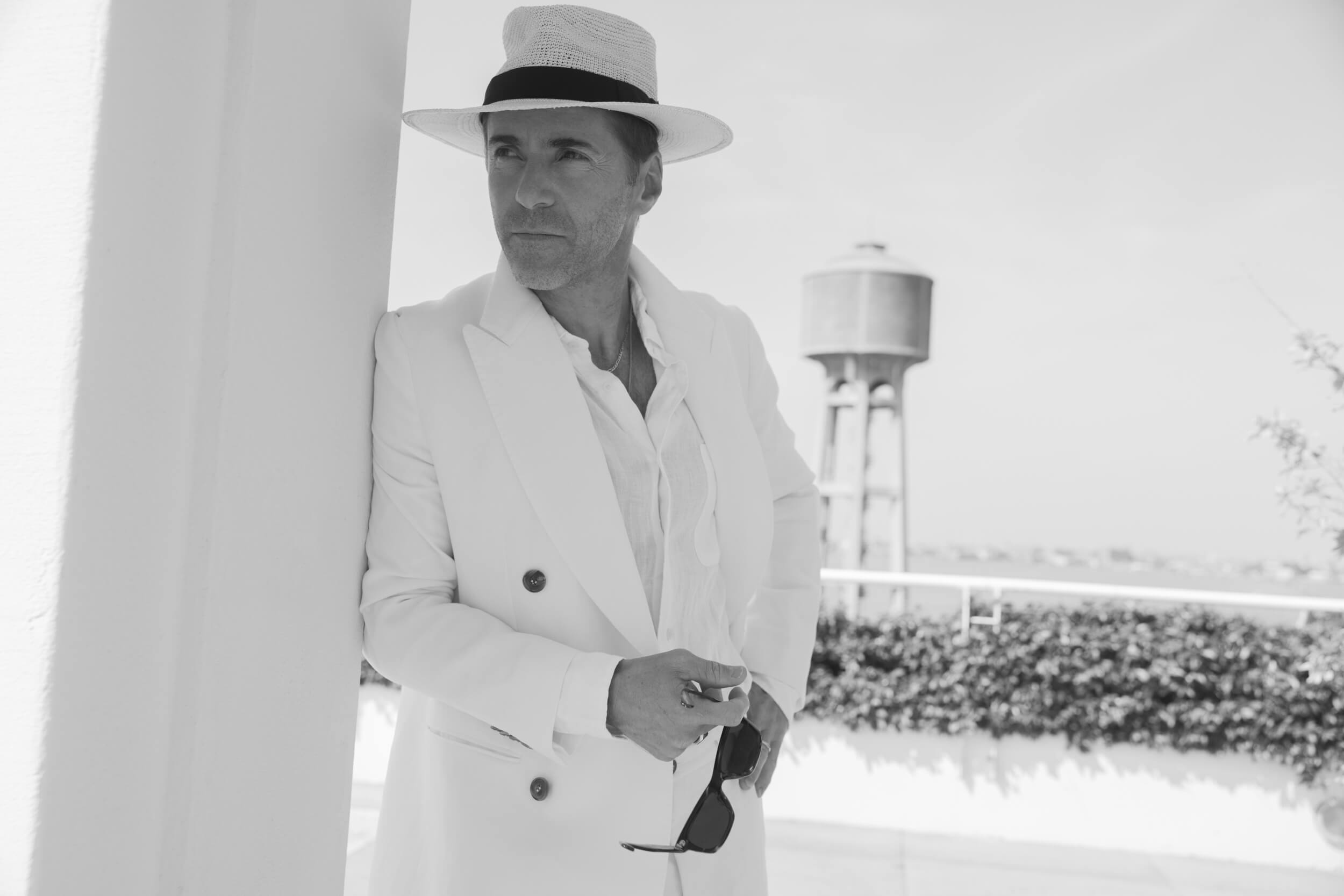
“The extreme attention to detail and the intention of every single line at every moment within every line struck me about Pedro: he works with such minutia.”
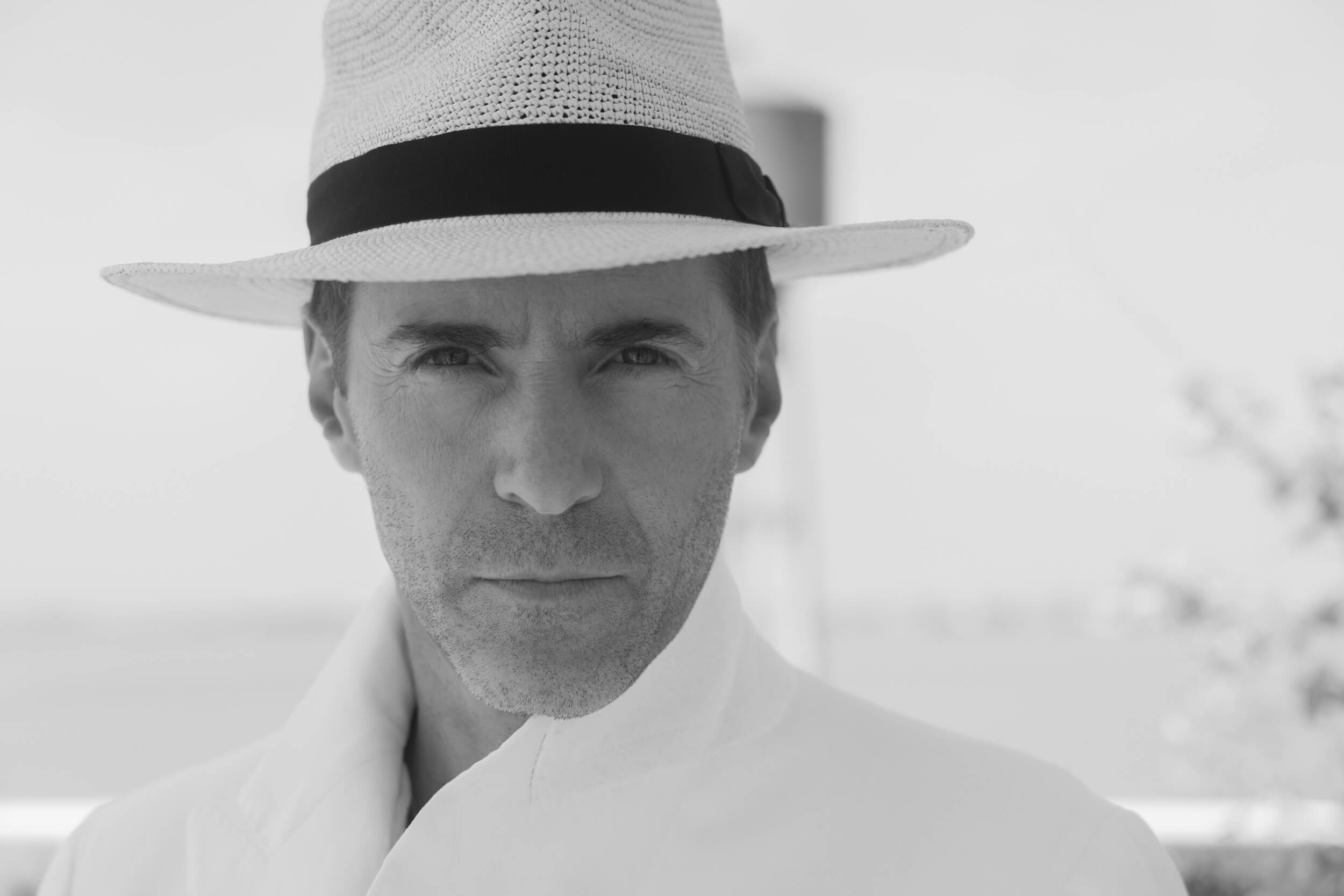
Playing different characters from time to time, you end up spending a lot of time with yourself, exploring your many sides, testing and getting to know yourself more and more. What’s the latest thing you’ve learned about yourself through your job?
What a hard question! As an actor, I guess you’re always trying to understand what the difference is between how you feel when you’re performing, and what is being transmitted on the screen – and it’s so often different.
First of all, I hate watching myself in movies, there are films I’ve been in that I’ve never even seen, but just when you understand what it is as a performer that you are transmitting, what your particular energy is, or how the audience relates to you as a performer on screen, you’re suddenly one year older, and you’re somebody completely different, and what is being transmitted on the screen is once again something completely different than what you understand about yourself. So, it’s like your aging is always one step ahead of your self-perception. I guess that’s going to continue for the rest of my life!
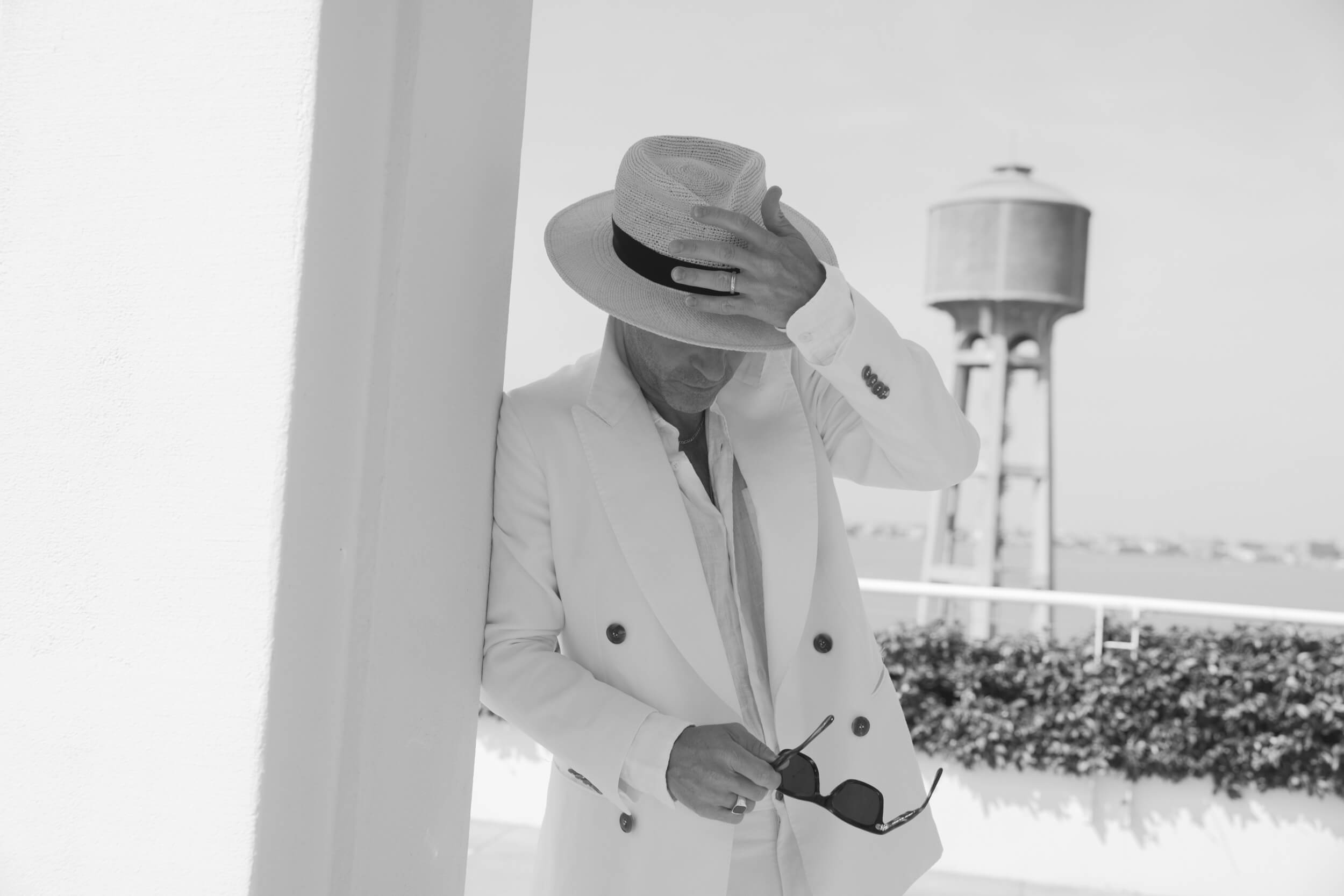
Photos by Johnny Carrano.
Location: JW Marriott Venice Resort & Spa.

